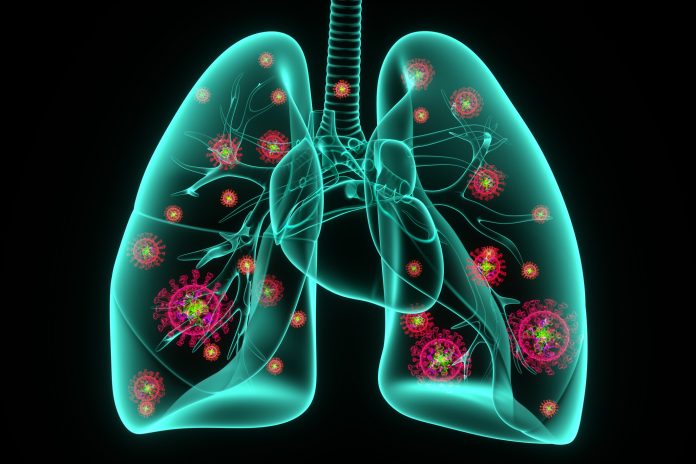
A new clinical study from researchers at the Center for Bioengineering at Hebrew University of Jerusalem, suggests that prescribing the drug fenofibrate to COVID-19 patients significantly reduced the buildup of fats in the lungs, which also reduced damage to the organ caused by the disease.
The study was presented at the recent SPARK Conference on Generic Drug Repurposing for COVID-19 by Prof. Yaakov Nahmias, director of the Center for Bioengineering at Hebrew University. The promising early data from 1,500 Israel-based COVID-19 patients have spurred the launch of clinical trials, set to begin this week at Barzilai Hospital in Ashkelon, Israel, as well as clinical centers in the U.S., South America, and Europe.
The research on fenofibrate was prompted by research by Nahmias showing how the SARS-CoV-2 virus inhibited the effective breakdown of fat within the lungs of patients. He identified the drug, which was originally designed to address high levels of triglycerides (fats) in the blood, as a potential treatment to this deficiency in COVID-19 patients. Fenofibrate was originally approved by the FDA in 1975
“We knew that the system we had developed for Tissue Dynamics provided us with a unique vantage point to understand how the virus operates in the lungs,” Nahmias explained in a press release. After discovering the efficacy of the drug in the lab-setting, Nahmias, together with Professor Oren Shiboleth of Ichilov Medical Center in Tel Aviv and Dr. Sigal Shafram-Tikva at Hadassah Medical Center in Jerusalem, worked to gather data from 1,500 Corona patients who were on a regimen of drugs designed to reduce the fatty buildup in lung cells.
The results demonstrated that patients who were taking the drugs to speed up the breakdown of fats were recovering from lung infections caused by COVID-19 in a matter of days—with no mortality among these patients.
“We showed that the human lungs responded to the SARS-CoV-2 virus by completely changing their metabolism, causing a major buildup of fats in lung cells. Our findings show that this unhealthy fat buildup is a critical factor in COVID-19 patient’s deterioration. Patients taking fibrates that work directly to breakdown fats recovered fast from the disease, while those taking medications that build fats like thiazolidinediones, showed greater lung damage and mortality,” Nahmias said.
According to the research team, using the drug—which is widely available, inexpensive, and has a proven safety record—could alter the effects of COVID-19 from a devastating disease to a far more manageable form of a respiratory cold.
With this research behind them the team will now begin an investigator-led Phase IIIa clinical study at Barzilai Hospital in Ashkelon, with financial support from global pharma company Abbott.
Additional clinical studies intended to corroborate Nahmias’s findings will also taking place in the U.S., Europe, and South America.
“Even as we see the introduction of numerous vaccines intended to reduce the transmission of the disease and protect vulnerable populations, this drug can help the direct treatment of the virus and reduce its severity and mortality. We hope to see the first results of the clinical phase of this study in the coming months,” said Professor Shlomo Maayan, director of the Department of Infectious Disease, Barzilai Hospital.













